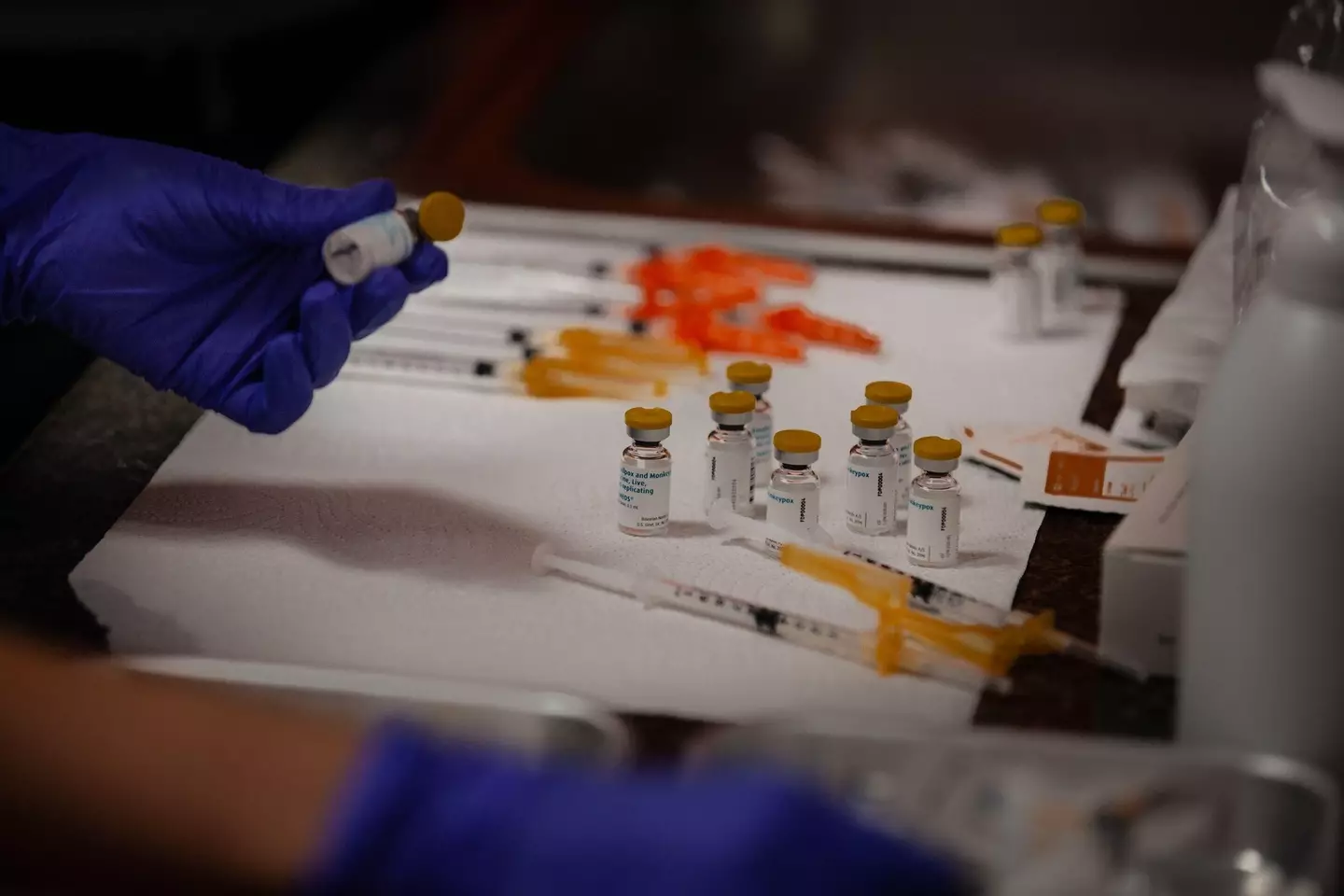
A second European monkeypox death has been confirmed today, Saturday 30 July, by Spanish authorities.
Spain's health ministry announced Europe's first death from the virus – a patient who suffered from encephalitis – yesterday, before confirming a second fatality today.
Yesterday, the health ministry reported 4,298 people were infected with the virus, making it the leading European country for monkeypox cases.
Of these infections, some 3,500 cases were men who had had sex with other men, while 64 were women.
Advert
There have been 75 suspected deaths in Africa, mostly in Nigeria and DR Congo, where a more deadly form of monkeypox is spreading.
Brazil also reported a death linked to the illness on Friday, with the US Centers for Disease Control and Prevention saying there are 21,148 cases worldwide.
Monkeypox is an illness caused by the monkeypox virus, which can spread from animals to humans, and between people.

On the WHO website, the health agency warns that while symptoms can 'go away on their own in a few weeks', in some people, an infection can lead to medical complications and even death.
"Newborn babies, children and people with underlying immune deficiencies may be at risk of more serious symptoms and death from monkeypox," it said.
The current outbreak was designated a global health emergency after becoming the biggest involving the virus.
WHO said the expanding outbreak is an 'extraordinary event', amid concerns that it could spill over into more countries, in turn requiring a coordinated global response.
Speaking at a virtual press conference last week, Dr Tedros Adhanom Ghebreyesus, Director-General of WHO, said there was a 'clear risk of further international spread'.
"In short, we have an outbreak that has spread around the world rapidly, through new modes of transmission, about which we understand too little and which meets the criteria in the International Health Regulations," he said.
Dr Tedros explained how, under the International Health Regulations, he is required to consider 'five elements in deciding whether an outbreak constitutes a public health emergency of international concern'.
First, he said, was the 'information provided by countries', which shows the monkeypox virus has 'spread rapidly to many countries that have not seen it before'.
"Second, the three criteria for declaring a public health emergency of international concern under the International Health Regulations, which have been met," Dr Tedros continued, saying a third concern was 'the advice of the Emergency Committee, which has not reached consensus'.
Fourth are 'scientific principles, evidence and other relevant information', which Dr Tedros said are currently 'insufficient and leave us with many unknowns', while a fifth element was the risk to human health, international spread and the potential for interference with international traffic.
"For all of these reasons, I have decided that the global monkeypox outbreak represents a public health emergency of international concern," Dr Tedros said, adding that the WHO's assessment is that the risk of monkeypox is 'moderate globally and in all regions, except in the European region where we assess the risk as high'.
If you have a story you want to tell, send it to UNILAD via [email protected]
Topics: World News, Health